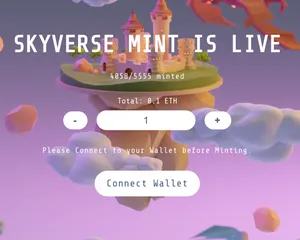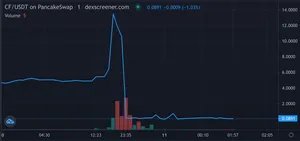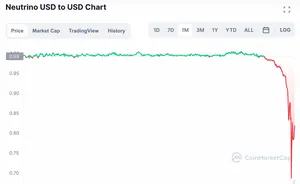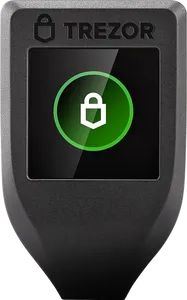Authorities link Axie Infinity hack to North Korean Lazarus hacking group
- "Community Alert: Ronin Validators Compromised", Ronin Newsletter
- U.S. Department of Treasury announcement showing the sanctioned wallet address
- Attacker wallet on Etherscan
RCMP says more than $2 million has been lost to crypto scams in Richmond, B.C. since January
Shareholders file a class-action suit against Coinbase over deceptively positive statements
Fake SkyVerse project draws in more than $150,000
NFT collector gets $280 top bid for the Jack Dorsey tweet NFT he bought for $2.9 million last year
Ethereum transition to proof-of-stake delayed again, as is tradition
The project has been delayed so many times that it has become a bit of a running joke — crypto critics regularly describe the Ethereum PoS migration as something that has been "only six months away" for several years now. Meanwhile, it has proven a useful way for Ethereum fans to dismiss the valid concerns about the enormous energy expenditure of their preferred blockchain, as though enormous emissions and e-waste are somehow a non-issue if there is some vague plan at some perpetually-in-the-future point to move away from them.
Anyway, Ethereum developers have projected new levels of optimism lately, with several of them describing "the merge" as imminent — I believe a June timeframe was the popular estimate. Unfortunately, this appears to have been just as unachievable as the prior "deadlines", with an Ethereum core developer stating it was now looking like it wouldn't happen until some time this autumn. This is particularly brutal timing, given Nilay Patel's interview yesterday with a16z's Chris Dixon, where he confidently pointed to an early July "merge" date (only to become substantially less confident when pressed on specifics). Anyway, see you this fall for the next hype cycle — between now and then, Ethereum will have again consumed energy comparable to the amounts used annually by some small countries, for little if any useful purpose.
- Tweet by Tim Beiko
- "Ethereum energy consumption", Ethereum.org
Texas Securities Commissioner issues emergency order to stop a metaverse casino
In the order, the Commissioner alleged that the project was "leveraging interest in metaverses to perpetrate a high-tech fraudulent securities offering", and had been falsely claiming to their followers that securities laws don't apply to NFTs. "They are misleading purchasers by claiming they can simply avoid securities regulation by implementing illusory features or use different terminology," the Commissioner's announcement said.
Science fiction author Pierce Brown cancels NFT project after negative fan response
The day after the announcement, Brown released a statement saying that he had been drawn in by the hope that NFTs would allow him to avoid "big companies whose sole focus is strong-arming away the rights to projects they've never been a part of to turn a big profit." He wrote, "I felt that if I didn't jump on it myself, someone else would, without the love, care, and artistry we believe in". He concluded that, given the response from his fans, he would not be continuing the NFT project. Some encouraged him to use the artwork that had already been created for merchandise or other non-NFT art sales.
- Tweet by Pierce Brown announcing the project
- Tweet by Pierce Brown announcing the project's cancellation
Someone once again appears to trade on insider knowledge of Coinbase listings
The day after the announcement, crypto influencer "Cobie" wrote on Twitter, "Found an ETH address that bought hundreds of thousands of dollars of tokens exclusively featured in the Coinbase Asset Listing post about 24 hours before it was published, rofl". The wallet had spent around $400,000 on multiple currencies listed in the announcement, which certainly appears as though they knew about the contents of the announcement before it was published.
This is not the first time allegations of insider trading have been made based on Coinbase announcements. In February, a trader made a profit of over $700,000 by trading on what appeared to be advance knowledge of two upcoming Coinbase announcements.
The Wikimedia community formally requests that the Wikimedia Foundation no longer accept cryptocurrency donations
The community member writing the closing summary of the discussion wrote that "Common arguments in support include: issues of environmental sustainability, that accepting cryptocurrencies constitutes implicit endorsement of the issues surrounding cryptocurrencies, and community issues with the risk to the movement's reputation for accepting cryptocurrencies.... Excluding new accounts and unregistered users, the tally is 232 to 94, or 71.17% in support of the proposal. These results indicate overall community support, with a significant minority in opposition. Thus, the Wikimedia community requests that the Wikimedia Foundation stop accepting cryptocurrency donations."
Attacker cashes out more than $11 million from Elephant Money in a flash loan attack
Elephant Money is a defi project with some questionable promises — its Twitter account advertises that people can "earn 672% APY", and a recent tweet encouraged people to use Elephant Money "as your new bank: Your share of ELEPHANT tokens can be compared to your debit account, except that it also generates you money. Stampede Perpetual Bonds is your retirement fund." Hopefully no one took them up on their suggestion to put their debit account balance or retirement money into the project.
Celsius stops allowing non-accredited investors in the United States to lend out their crypto
Individual accreditation is based on net worth or income: only those with net worth above $1 million, or yearly income above $200,000, qualify. American Celsius users were largely unhappy with the change, with one writing, "Celsius Network making the rich richer. Shameful."
Ichi token plummets 90% after Rari liquidity pool is emptied
One Rari developer blamed Ichi for the disaster, writing, "Fuse is a permissionless protocol. Pool operators are responsible for following best practices to avoid situations like this one". Rari Capital's official Twitter account also blamed Ichi, stating, "This is a permissionless pool that is owned and operated by Ichi. We hope to see an announcement from Ichi regarding redemption strategies and next steps to make users whole."
In the FAQ about the incident, Ichi wrote that they had allowed such a high LTV ratio in the pool because they expected "users would make responsible decisions that would benefit the community". There is currently around $30 million of bad debt in the liquidity pool.
NFT collector suffers wallet compromise and loses over 100 NFTs, priced at over $600,000
Attacker drains Creat Future tokens through flaw that allows anyone to transfer the contents of another person's wallet
$CF was an asset belonging to Creat Future, an early-stage defi project. Some have speculated that the hack was an inside job, and the vulnerable function was added intentionally.
First crypto burger purchase at Bored Ape restaurant illustrates why people don't widely do this
A customer ordered two combo meals, which he purchased by using his mobile crypto wallet to transfer 2 $APE. I was able to track down the transaction, and at the exact time of transfer, 2 $APE were priced at $21.92. The value of $APE has increased by 20% since then, so the purchaser lost out on those earnings by spending them at that time (compared to cash, which is worth roughly the same as it was 10 days ago). This is a (very small) example of why people don't tend to use as currency the same assets they are expecting to increase substantially in value. Furthermore, the purchaser had to agree to an estimated $10 in gas fees when he confirmed the transaction — half as much again as the price of the meal. The transaction ultimately cost the purchaser $4.66 in gas due to fortunately low rates that day, but it was a transaction fee that wouldn't exist if they used cash, or would be substantially smaller and typically absorbed by the restaurant if using a credit card.
Painful financial implications aside, a public transaction record means it's now trivial for anyone to see who is purchasing food at the restaurant using crypto in real time — something that has concerning implications for victims of stalking and other abuse if implemented more widely, as well as just for average people who enjoy having some degree of privacy.
Anyway, hopefully the food's good — assuming the person had any appetite left after looking at their food containers depicting an ape with green skin sloughing off its face.
Gripnr seeks to financialize your Dungeons & Dragons games
A company called Gripnr is already working to line up NFT pre-sales, despite acknowledging that they have no idea how they will prevent fraudulent data input — an issue commonly known as the oracle problem. It's also unclear how they intend to change the game so that it's sufficiently different from the Wizards of the Coasts game that they will not face legal action (an issue that ended another crypto project planned to be based around a WotC game). We can only hope that none of this may last long enough to become an issue, given that Gripnr have come up with an idea that I can't imagine appealing to a single person who's ever played D&D.
- "NFTs Are Here to Ruin D&D", Gizmodo
Legal action begins against developer who solicited investments to build an OpenSea competitor, then used it to fund his NFT trading
Meanwhile, Gaye used the project Twitter account to promote his own NFT collection. He also took the donated funds and used them to buy NFTs. When pressed on this in the project's Telegram chat, he wrote, "Im buying NFTs because its my ETH and thats what I wanted to do." After crypto scam investigator zachxbt wrote about Gaye's scams, Gaye threatened to "put him in the ground if we ever meet in person".
Gaye has spent almost 400 ETH on NFTs since beginning to collect donations for his project — equivalent to over $1 million. He has also sold NFTs for a total of around 315 ETH (roughly breaking even with the amount he spent on NFTs, if looking at the ETH prices at time of trade), and amassed a substantial number of NFTs he still holds.
Blockchain bridge for the WonderHero play-to-earn game is exploited
Starstream treasury drained of $4 million
Scammer creates a fake site to revoke wallet permissions, then pretends there is an OpenSea vulnerability to trick people into using it
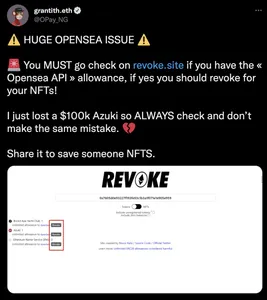 A tweet falsely claiming an OpenSea vulnerability, linking to a scam permission revocation website (attribution)
A tweet falsely claiming an OpenSea vulnerability, linking to a scam permission revocation website (attribution)- Scam wallet on Etherscan
- Tweet thread by 0xQuit
Star Trek gets into NFTs
- "First NFT Collection from Paramount Global and RECUR Partnership to Drop with Star Trek on April 9", press release on StarTrek.com
Ubisoft abandons Tom Clancy's Ghost Recon Breakpoint after shoehorning NFTs into it
Although the Formula 1 blockchain game that shut down earlier this month made halfhearted promises to allow NFT holders to swap their NFTs for ones used in a different game, Ubisoft has made no such promises.
Another $1 million lawsuit is filed against OpenSea for stolen apes
The language in the lawsuit is very similar to the stolen ape lawsuit filed February 18, which is not surprising because the plaintiffs are using some of the same lawyers. Vice interviewed one of the lawyers, and determined that the somewhat odd wording refers to the issue in which OpenSea users didn't realize their old listings of NFTs at lower prices were still active.
Worldcoin, creators of the eyeball scanning orb that promises universal basic income, encounters more difficulties
Collectors spend a cumulative $26 million on gas fees alone for "VaynerSports" NFT project—3x the amount made from the NFTs
Someone mints NFTs of r/place, because what's the point of collective artwork if someone can't profit off it
Sadly, the collaborative and fun community art piece and social experiment was financialized almost immediately after the last pixels were placed, with several projects cropping up to sell portions of the canvas for crypto. One of the projects ended almost as quickly as it began, replacing all its NFT images with the "r/FUCKNFTS" portion of the canvas and rewriting the description to say, "Ok, I guess that was a bad move and a bad Joke. Please use Cryptos as decentralized money against states, not to sale dumb images on the internet. Love U Reddit, got U". Other projects, however, remain for sale.
COVID-19 conspiracy theorist Robert Malone announces to trucker convoy his plans to dox more than 4,000 people using blockchain-based tech "so they can't take it down"
Federal authorities seize $34 million in Bitcoin from alleged seller of stolen account information
Scammer takes advantage of a platform's poor UX to steal several pricey Bored Ape NFTs
When the user confirmed the transaction, they transferred their three pricey apes to the scammer, receiving three worthless ones in return. NFT trader 0xQuit estimated the loss at around $587,000.
Amidst rumors of market manipulation, Waves' USD-based "stablecoin" loses peg, drops to $0.82
User loses £55,000 (~$72,000) to Trezor phishing email
The email in question appeared to be from Trezor, and claimed that users' funds were in jeopardy. It prompted them to download a new (fake) version of the Trezor wallet software, and when users entered their seed phrase to restore their wallet from a backup, it drained their crypto. "What a mug I am," wrote the affected user. "Had been building up my BTC for seven years and lost it in a few minutes' utter stupidity."
The Reddit post also included two follow-up edits, displaying the victim blaming that is common when users are hit with phishing scams and other attacks. The user wrote "Edit: yes I entered my keys, because I'm a twat Edit 2: a lot of people saying they'd never fall for it. I hope they're right."
- "I fell victim to the Trezor phishing scam" Reddit post on r/bitcoin
Attack on Inverse Finance results in a $15.6 million loss
Waves protocol Vires Finance loses $530 million after questionable withdrawals
Waves founder Aleksandr Ivanov blamed the withdrawals on outsiders. However, various crypto researchers believe they have identified Ivanov as the one behind wallets involved in the mass withdrawals. These allegations were later repeated by the FTX bankruptcy estate in an adversary lawsuit against Ivanov.
- "Waves founder’s role in lost $530m raises questions about who’s to blame", DL News
- Adversary case by FTX vs. Aleksandr Ivanov.
Taiwanese singer Jay Chou has Bored Ape stolen
The theft prompted security researchers at Check Point Research to investigate what ended up being a serious bug in Rarible, where malicious NFTs could execute JavaScript and trick users into signing a contract that would then empty their wallets.
- "Taiwanese star Jay Chou says Bored Ape NFT has been stolen by 'phishing website'", South China Morning Post
Class action lawsuit filed against "Let's Go Brandon" coin creators for alleged pump-and-dump
De Ford has named the LGB coin creators in the suit, as well as NASCAR, and promoters like Brandon Brown and Candace Owens.
Apparent scammers drop NFTs appearing to be from the Bored Ape Yacht Club project
Whoever was behind these transactions airdropped fake NFTs purporting to be a part of an upcoming BAYC metaverse land project, sending them to owners of pricey NFTs and various NFT influencers. It's not clear whether the NFT can perform malicious actions, or if any individuals have been impacted by it if so. However, part of the scam appeared to be to try to entice other users hoping to get in on the next new BAYC project to fall for a phishing scam. Tracing the transactions back showed an OpenSea profile with a fake "verified" badge and a mint link to what appears to be a phishing website, which invites people to connect their wallets to supposedly mint their own BAYC land NFTs.
Discord servers of several big-name NFT projects including Bored Apes and Doodles are compromised
Other Discords reported to be compromised include several other big-name projects including Doodles, which had previously endured a Discord compromise in late February. This particular compromise appeared to stem from a series of compromised Discord bots, including a very popular CAPTCHA bot used to fight spammers. It's unclear if anyone lost money to the fake links posted by seemingly-official Discord accounts, or how much, but these types of attacks often lure in at least some victims, and the higher-priced NFT projects like Bored Apes and Doodles enable scammers to ask for quite a lot of money without raising an eyebrow.
Nate Chastain, executive who was canned from OpenSea for alleged insider trading, creates a new NFT platform
Former Cosmic Cowgirls head community moderator accuses the project of rug-pulling
The Cosmic Cowgirls team hit back with accusations against the head moderator, accusing him of falsifying allegations against the project out of anger at being fired along with the other moderators. The group also claimed that the funds had been moved for security and tax reasons, and sent a vaguely threatening message to the moderator in which they stated that he should "discontinue the spread of false information in attempts to harm us and the project" and "resolve [concerns] ... privately as the terms of our contract are still ongoing and applicable".
Lending protocol Ola Finance is hacked for $3.6 million
One of their networks, built on top of the Fuse chain, was exploited for crypto assets priced at around $3.6 million. By taking advantage of a re-entrancy vulnerability, the attacker was able to take loans on the platform, then withdraw the collateral without paying back the loans. They then took the stolen assets and transferred them to the BNB and Ethereum chains, making them more difficult to recover.
Creator of apparent $21 million Bored Bunny rug pull miraculously resurfaces following DOJ action against a different rug pull
Suddenly, the project creator resurfaced on March 29, with a tweet claiming that he had been absent for a month because he had been... reading emails. The team then announced they would be handing the project reins over to a community member, though there was no mention of the $21.1 million that had already been pocketed by the original team.
The unexpected return came only days after the U.S. Department of Justice announced charges against two perpetrators of a different NFT rug pull, in which they stated unequivocally that "the same rules apply to an investment in an NFT or a real estate development. You can't solicit funds for a business opportunity, abandon that business and abscond with money investors provided you."
Popular blockchain game Axie Infinity suffers a $625 million exploit, the largest in defi history
Sky Mavis announced that they had halted the Ronin Bridge and Katana DEX, and were making changes to their network to try to guard against future attacks. They also wrote that they were "working with law enforcement officials, forensic cryptographers, and our investors to make sure all funds are recovered or reimbursed".
Would-be collectors of new Pak NFTs lose thousands of dollars in gas fees on failed transactions
Unfortunately, the drop did not go smoothly. Heavy botting caused gas fees to spike, and the project claimed there were issues with MetaMask's estimation of gas fees. Outside parties have suggested the issue was not with MetaMask, but rather with a poorly-implemented smart contract.
People wound up making transactions that ran out of gas before completing, meaning they lost their gas fees and did not successfully receive any NFTs. Others paid sufficient gas, but ran into other errors with the contract that meant they didn't get an NFT. The spiking gas fees meant some people lost a considerable amount of money — people reported failed transactions that cost them amounts ranging from 0.1 and 0.8 ETH (between $338 and $2,700). Some who did successfully receive NFTs also claimed to have lost value as a result of the rocky mint, which they said contributed to a lower-valued NFT.
manifold.xyz, the group behind the mint, reported that they planned to reimburse people who lost gas trying to mint NFTs. Some people seemed happy with this solution, while others were upset that they missed their chance to obtain an NFT they wanted as a result of the problems.
Artist for Andrew Yang's crypto lobbying DAO is offered $500 after being promised "a percentage" of revenue in a project that raised at least $790,000
One of the artists, Phillip Lietz, took to Twitter on March 28 to call out the group for the pittance he was offered for his work, posting screenshots of an email exchange he had had with a member of the project team. The emails show Lietz asking whether artists would receive compensation for their work, and a project team member replying: "Yes... any artist we select will receive a percentage of our revenue".
They went on to say that if they used his work, they would "negotiate a percentage of what we sell". The reply to Lietz's question about if there was a contract was: "No formal contract as we need to move fast, but I imagine this email would hold up in court as a written agreement if it ever came to that (it wouldn't! Andrew and I are men of our words!)" In a subsequent email, the team member wrote that they would "love to send you a Lobby3 Member token", and that "our artist commissions weren't huge, but [we] would love to send you $500 for your time and effort". Lietz replied to say that the DAO's NFT fundraising appeared to have raised at least $790,000, and that $500 was an unfair amount (although I suppose 0.06% is technically "a percentage"). The team member replied by basically negging Lietz, writing "Honestly, I didn't want to say this, but I will now mention: we weren't actually going to use your art in the project... but you seemed like a great guy and I wanted to throw you some cash and get you some exposure".
Anyway, nice job Andrew and team! Nothing says "eradicating poverty" and "empowering creatives" like paying them basically nothing.
Top Super Smash Bros. Ultimate player has his Twitter account hacked to shill NFTs
Another collector loses a Bored Ape to a phishing scam
When chastised by other NFT collectors who assumed he had stored the ape on a hot wallet, Moulène clarified that the NFTs had been stored in a Ledger hardware wallet. He later tweeted, "Since I've got a platform, here's what I learned today: COLD WALLET, does not just mean storing assets in a series of ledgers/trezors. It means a wallet that is NEVER Linked to anything besides MM or OS." Moulène went on to threaten legal action, saying, "Oh I will spend 10x that ape tracking these fucks down and suiting [sic] them into oblivion." and "I'm going to pursue legal action in the states and internationally (if need be) to find the people responsible and hold them accountable."
- Tweet by Cameron Moulène
- Bored Ape #5778 on OpenSea
Owner of two pricey Ape NFTs sells them for $140 in a possible hack
Some initially speculated that he may have mistaken the offer represented in DAI for ETH, as 115 ETH (~$387,500) and 25 ETH (~$84,000) would've been pretty reasonable trades for the respective NFTs. However, the trader posted on Twitter that he had been "swiped ... of his BAYC and MAYC... I am fine. In shock, but okay. Do i know what happened? No. Still trying to wrap my head around how and why."
NFT trader loses a Mutant Ape NFT to an NFT swap scam
Revest Finance is hacked for $2 million
- "Revest Protocol Exploit Recovery Plan", Revest Finance



